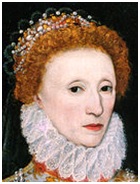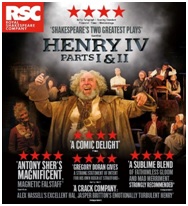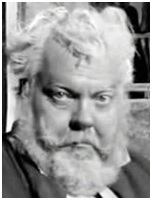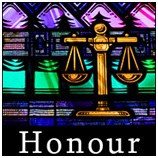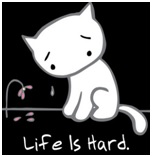|
 |
|
 |
|
|
||
Shakespeare's Henry IV Parts 1 and 2 -
Leadership and Change
Henry IV Parts 1 and 2
Key characters Henry IV, king of England. Prince Henry (Harry or Hal), Henry IV’s eldest son and later Henry V. Duke of Gloucester, Duke of Clarence and Prince John, Henry IV’s other sons and Prince Henry’s brothers. Falstaff, Prince Henry's friend. Earl of Northumberland and his son, Hotspur. Lord Edmund Mortimer, English aristocrat. Owain Glyndwr, Welsh leader and Mortimer’s father-in-law. Fun facts Falstaff was Queen Elizabeth I’s (pictured right) favourite Shakespearean character.
The story The English king, Henry IV:
Prince Henry (disguised) takes part in a robbery, led by his friend, Falstaff. Prince Henry then agrees to help fight the rebellion - Glyndwr now having the support of:
Prince Henry persuades Falstaff to join him in battle. They help his father win the Battle of Shrewsbury, where Prince Henry kills his rival, Hotspur, and so saves his father. Prince Henry wrongly assumes the death of the injured Falstaff, who stabs Hotspur's dead body to deceitfully take the credit for killing him. Falstaff is a likeable rogue, who takes bribes, cheats and steals. Mistress Quickly, a mistress in a London tavern, attempts to have him arrested for fraud, but he dissuades her by promising to marry her. Falstaff even persuades her to pawn her silver for cash. But this doesn’t stop him seeing a prostitute,
Doll Tearsheet. (Orson Welles is pictured right as Falstaff in a 1965 film) Meanwhile Prince Henry is worried about his father who can’t sleep due to
After defeating the rebels, the king dies Prince Henry vows to be a good king (as Henry V) and:
Lessons of leadership 1. Honour Honour (acting according to your principles) is vital to good leadership. Nobody trusts or respects Falstaff, because he hates:
He pretends death in battle, saying “the better part of valour is discretion” to excuse his cowardice. But Hotspur proves that honour can be harmful, if you have the wrong values. Hotspur's idea of honour is an obsession with avenging the murder of Richard II by Henry IV, and his actions are based more on a vivid imagination than reality. At the Battle of Shrewsbury Sir John Oldcastle tells Prince Henry that honour is no good to the dead. “Honour is a mere scutcheon” he says (a scutcheon shows the coat of arms of a dead person). 2. Change is inevitable The passing of time brings:
3. Continual learning Prince Henry becomes a great leader by:
He becomes more mature by:
4. Leadership is difficult Henry IV shows how difficult it is to win power and keep it. He is tortured by the
Henry IV:
5. Find the right balance between work and leisure Prince Henry discovers that leisure is boring without work. “If all the year were playing holidays, to sport would be as tedious as to work”, he says.
6. Put thought into action A dying Hotspur says to Prince Henry that “thought is the slave of life”. In other words, thinking should be:
But he adds that thought is also “life time’s fool”. In other words, it can be used for the wrong purposes.
7. Have fun by mixing duty with desire Despite his moral weaknesses, Falstaff is very likeable, because he is so full of fun with the ability to laugh
at himself. There is a bit of Falstaff in us all “Banish plump Jack [i.e. Falstaff] and banish all the world”, he tells Prince Henry. But Prince Henry also learns from his servant, Poins, that desire may “outlive performance”. In other words, desires will be damaging, if they distract you from doing something responsible and worthwhile. 8. Adapt communication to your audience Hal becomes a great leader because his language and behaviour suit his audience, rich or poor.
Key quote on work and leisure If all the year were playing holidays, to sport would be as tedious as to work, Prince Henry.
Key quote on leadership Uneasy lies the head that wears the crown, Henry IV.
Key quote on health He hath eaten me out of house and home, Mistress Quickly (talking about Falstaff and the origin of a well known English proverb).
Key quote on emotional intelligence The better part of valour is discretion, Falstaff.
Key quote on the learning organization Thought's the slave of life, Hotspur
Key quote on death A man can die but once. We owe God a death, Feeble (a recruit for the king’s army).
Key quote on careers 'Tis no sin for a man to labour in his vocation, Falstaff |
|
|
||
|
|
||
| Copyright © wisdomtowin.com 2025 All Rights Reserved | ||
|



